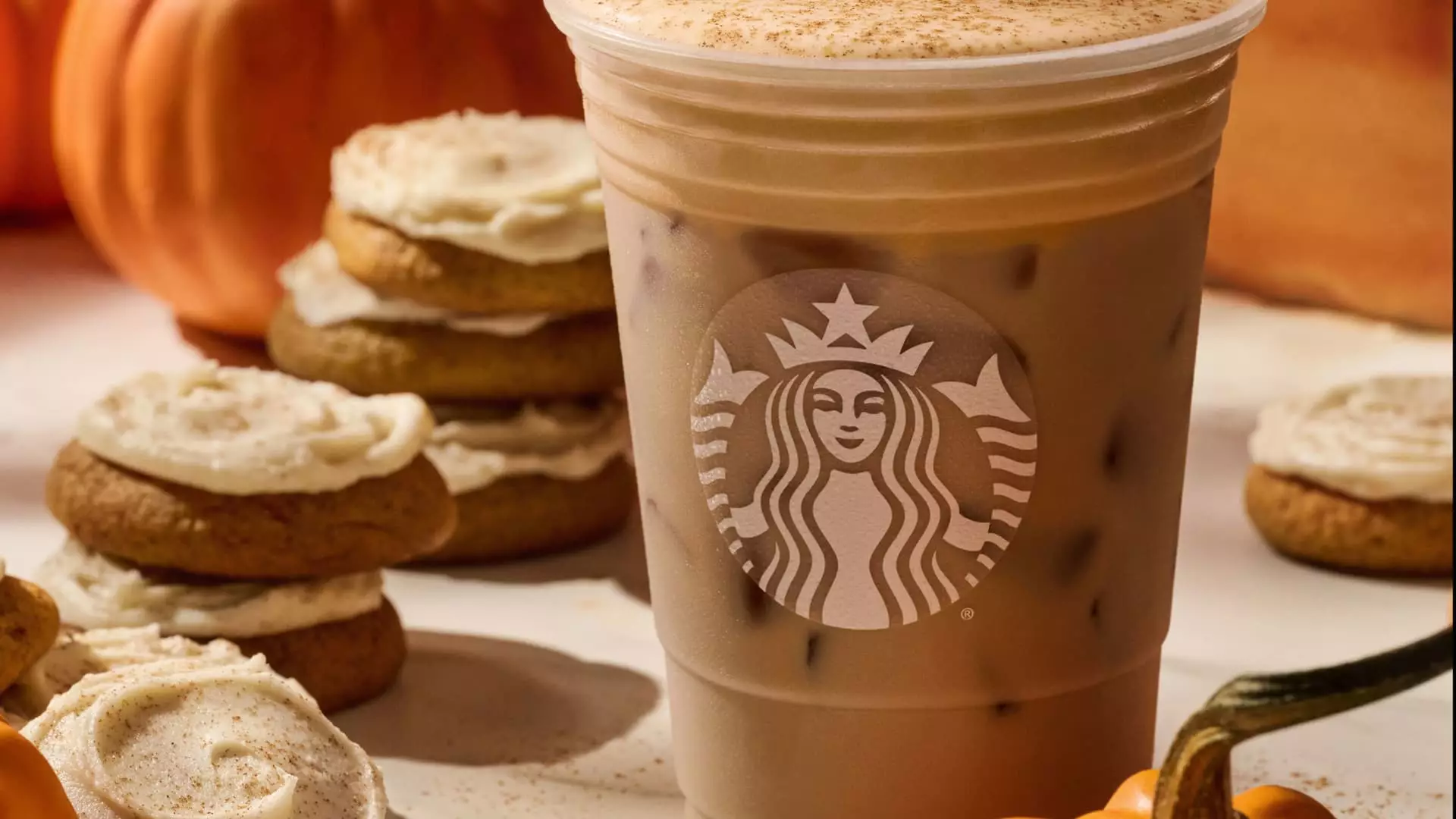As we approach the end of the summer season, a peculiar trend has emerged in recent years – the early arrival of fall-themed food and beverages in restaurants and retailers. Traditionally, Halloween candy and pumpkin spice lattes would make their debut after Labor Day, signaling the start of fall. However, in the past few years, there has been a noticeable shift in the timeline, with establishments releasing their autumnal offerings even earlier. This article delves into the reasons behind this phenomenon and explores how pumpkin-themed items have gained popularity throughout the season.
According to Technomic, the number of limited-time pumpkin launches more than doubled from August 2019 to August 2022, with a staggering 86 pumpkin-themed items hitting the market. Although November remains the most popular month for launching limited-time pumpkin items, August is quickly gaining ground. In 2019, restaurants and convenience stores introduced 268 pumpkin-themed seasonal items, which skyrocketed to 559 items by 2022. This surge in pumpkin offerings can be attributed to three primary factors: profitability, taste, and consumer research.
Ken Harris, managing partner at Cadent Consulting Group, explains that companies jump on the pumpkin bandwagon because it is a lucrative endeavor. The demand for pumpkin-flavored products is evident, and companies are eager to capitalize on this trend. Furthermore, the sales of fall-themed items contribute significantly to the bottom line, prompting establishments to extend the fall season and offer these products much earlier than before.
The Taste Appeal
Another key reason behind the early arrival of autumnal fare is the simple fact that pumpkin-flavored food and beverages taste excellent. Consumers have developed a fondness for pumpkin-infused treats, prompting businesses to meet this demand by pushing the boundaries of timing. As a result, establishments have the confidence to introduce these offerings earlier, knowing that customers will eagerly embrace them.
Over time, the perception of fall has shifted due to several societal factors. With schools now starting earlier in the year, the significance of Labor Day as a seasonal indicator has diminished. Many families engage in back-to-school shopping during August, priming them for fall and making Halloween candy purchases along the way. This convergence of events makes fall seem just around the corner, prompting establishments to cater to this shifting mindset by launching autumnal items earlier.
Starbucks: The Catalyst for Pumpkin Fever
Starbucks undoubtedly played a crucial role in the rise of pumpkin-themed drinks and food. The introduction of its now-iconic pumpkin spice latte 20 years ago marked the genesis of the pumpkin craze. Peter Dukes, one of the original creators of the pumpkin spice latte, acknowledges that 20 years ago, the pumpkin market was virtually non-existent, with only pumpkin puree available in grocery store aisles. Starbucks took advantage of this untapped potential and set off a pumpkin revolution.
However, Starbucks also receives its fair share of backlash from consumers who decry the early introduction of fall menus. Since 2018, the coffee giant has released the pumpkin spice latte in August, attracting criticism from those who believe it is still too early for pumpkin-flavored drinks. Starbucks justifies its timing by claiming that late August coincides with customers’ return to their routines after the summer break. Erin Stan, a Starbucks spokesperson, points out that the end of August is an opportune moment to roll out fall-themed items.
The Evolution of Starbucks’ Fall Menu
As Starbucks progressively introduces the fall season earlier, it has adjusted its menu accordingly. In 2019, the coffee chain launched the pumpkin cream cold brew as its second-ever pumpkin beverage. This year, Starbucks unveiled the iced pumpkin cream chai latte. These two drinks cater to the rising popularity of cold beverages, which account for more than three-quarters of all Starbucks orders, regardless of the season. Moreover, the iced options are ideal for late August when customers are still battling the heat and seeking refreshing alternatives.
Consumer Preferences and the Delayed Indulgence
While many consumers eagerly embrace pumpkin-flavored treats as soon as they hit the market, some exercise restraint and prefer to wait for a more appropriate time. Eleni Demestihas, a lawyer based in Denver, for instance, refrains from enjoying her first pumpkin spice latte until she can wear a sweatshirt all day, typically around mid-October. This deliberate delay in indulging in fall treats speaks to the anticipation and excitement that accompany the arrival of autumn.
Early Birds in the Fall Arena
While Starbucks may attract attention for its early fall menu, other establishments have joined the pumpkin frenzy even earlier. Dunkin’, a privately owned chain, released its autumn menu on August 16, a full eight days before Starbucks launched its items. Krispy Kreme, known for its delectable doughnuts, rolled out its pumpkin spice lineup on August 7. IHOP, famous for its breakfast offerings, introduced its fall menu, including pumpkin spice pancakes and pumpkin spice cold foam cold brew, on August 28. Although IHOP’s launch was later than previous years, the popularity of its pumpkin spice pancakes remains unwavering, with approximately one million pancakes sold each time they make an appearance on the menu.
The Influence of Consumer Insights
According to Kieran Donahue, Chief Marketing Officer at IHOP, the timing of fall-themed menus is predominantly based on consumer insights. These insights shape the decision-making process for establishments, ensuring that the release of seasonal items aligns with consumer preferences. Ultimately, the popularity and demand for pumpkin-flavored offerings drive the early arrival of fall menus, cementing their place in the market.
While some may lament the early arrival of fall-themed food and beverages, it is undeniable that the pumpkin craze has captivated the hearts and taste buds of consumers. Businesses have adapted to this demand by extending the fall season and launching autumnal fare sooner. Whether enjoyed early or with delayed gratification, the popularity of pumpkin-flavored items persists, ensuring that their presence in restaurants and retailers remains a mainstay of the fall season.


Leave a Reply